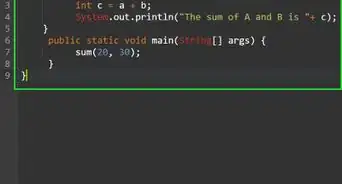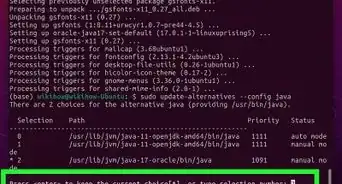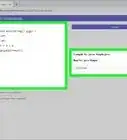X
wikiHow is a “wiki,” similar to Wikipedia, which means that many of our articles are co-written by multiple authors. To create this article, 10 people, some anonymous, worked to edit and improve it over time.
This article has been viewed 141,057 times.
Learn more...
This article will show you how to close a window in Java. Closing a window is much easier using Swing's JFrame, but it's also doable using AWT's Frame.
Steps
Method 1
Method 1 of 2:
Using javax.swing.JFrame
-
1Obtain an instance of a
JFrame, or create a new one. -
2Set default close operation. Default close operation is set using the setter method inside the
JFrameclasssetDefaultCloseOperationthat determines what happens when the close button is clicked and takes the following parameters:-
WindowConstants.EXIT_ON_CLOSE- Closes the frame and terminates the execution of the program. -
WindowConstants.DISPOSE_ON_CLOSE- Closes the frame and does not necessarily terminate the execution of the program. -
WindowConstants.HIDE_ON_CLOSE- Makes the frame appear like it closed by setting its visibility property to false. The difference betweenHIDE_ON_CLOSEandDISPOSE_ON_CLOSEis that the latter releases all of the resources used by the frame and its components. -
WindowConstants.DO_NOTHING_ON_CLOSE- Does nothing when the close button is pressed. Useful if you wish to, for example, display a confirmation dialog before the window is closed. You can do that by adding aWindowListenerto the frame and overridingwindowClosingmethod. Example of the custom close operation:frame.setDefaultCloseOperation(WindowConstants.DO_NOTHING_ON_CLOSE); frame.addWindowListener(new WindowAdapter() { @Override public void windowClosing(WindowEvent e) { // Ask for confirmation before terminating the program. int option = JOptionPane.showConfirmDialog( frame, "Are you sure you want to close the application?", "Close Confirmation", JOptionPane.YES_NO_OPTION, JOptionPane.QUESTION_MESSAGE); if (option == JOptionPane.YES_OPTION) { System.exit(0); } } });
-
Advertisement
Method 2
Method 2 of 2:
Using java.awt.Frame
-
1Obtain an instance of a
Frame, or create a new one. -
2Add window listener. Call
addWindowListenermethod on the instance. The required argument isWindowListener. You can either implement every method of theWindowListenerinterface or override only the methods you need fromWindowAdapterclass. -
3Handle window closing event. Implement
windowClosingmethod fromWindowListenerinterface or override it fromWindowAdapterclass. There are two ways of closing a window:- Dispose the window after the close button is clicked:
- Call
disposemethod insidewindowClosingmethod.
frame.addWindowListener(new WindowAdapter() { @Override public void windowClosing(WindowEvent e) { // Dispose the window after the close button is clicked. dispose(); } });
- Call
- Terminate the program after the close button is clicked:
- Call
System.exitmethod insidewindowClosingmethod.
frame.addWindowListener(new WindowAdapter() { @Override public void windowClosing(WindowEvent e) { // Terminate the program after the close button is clicked. System.exit(0); } });
- Call
- Dispose the window after the close button is clicked:
Advertisement
About This Article
Advertisement





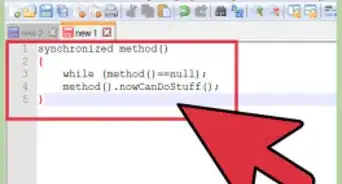


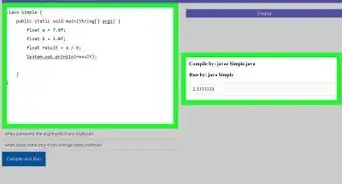


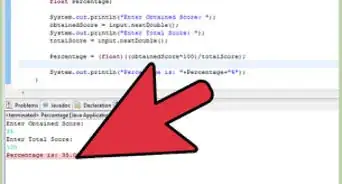

-Step-42.webp)
